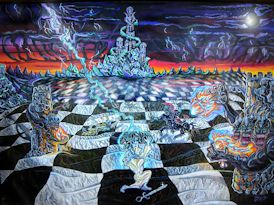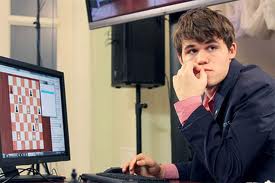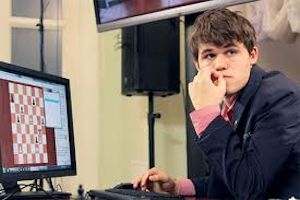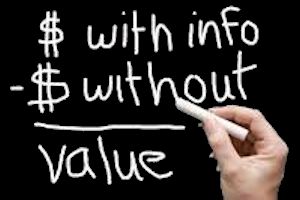On Nov 22, Magnus Carlsen, a 22-year-old from Norway, won the 2013 world chess championship without losing a single game. Although his first championship, the win was hardly an upset as Carlsen is the highest rated chess player of all time. At age 22, Carlsen has already earned a rating higher than the best achieved by legendary grandmasters Bobby Fischer or Garry Kasparov. His secret weapon is a chess software program and computer server hidden in the basement of an Oslo company named Basefarm. Carlsen runs this software to hone his skills through analysis and practice.
As seen in chess, the computer is a powerful tool, both for analyzing complex situations and for training people to do the same. How can you harness this power for decisions in your organization?
A Grandmaster against a Computer
Deep Blue beats Kasparov and the chess world is never the same.
A watershed event occurred in 1997, when a specialized chess computer named “Deep Blue” defeated grandmaster Garry Kasparov. The key realization from this event was not that computers were smarter than people, rather that they possessed a complementary capability. People are good at intuitive and creative thinking, but make occasional mistakes and are rather poor at evaluating the value of a particular strategy in the face of many options. The computer, given the information supplied to it by humans, can analyze millions of possibilities per second, see more deeply than humans, and determine which strategy is most likely to lead to a win. Chess grandmasters understand the value of the human/computer combination: neither is superior to the other in every way; they are complementary; and working together they are considerably more skilled than either human or computer alone.
A Grandmaster with a Computer
Grandmasters make creative leaps. Computers crunch numbers. Together they crush the competition 99% of the time.
The performance ratings of chess players are based on the Elo system, which assigns a 1500 rating to an average player from 1960. An Elo 200-point difference between players signifies a 76% chance of winning for the higher-rated player. To understand the improvements to chess made by computers, note that Bobby Fischer had at one time held the highest rating ever at 2785. Kasparov, who held the number one world ranking for over twenty years, was soundly beaten by Deep Blue and improved his game as a result, eventually reaching a new record of 2851. Carlsen now holds the record with a 2872.
Although Carlsen plays more like a computer than any of his human opponents, he has very little chance to beat Houdini. Houdini is the name of the current highest-rated chess computer, weighing in at a whopping 3247. Houdini is not unbeatable though. A variant of the game termed “Advanced Chess” pairs a human with a computer assistant, allowing the human to perform advanced analyses not possible without the computer's help.Even an average club player teamed with a lesser computer will outplay Houdini. An advanced chess team comprised of Carlsen and Houdini would be nearly unbeatable with an Elo rating nearing 3500.
Unleash Your Creativity and Intuition
Two of the world’s top players, Viswanathan Anand and Anatoly Karpov, competed in an Advanced Chess tournament in 1999. Anand made a creative leap, guessing that he could sacrifice a piece to push a pawn across the board and gain a queen, giving him a major advantage. Anand used his computer for 10 minutes, running a deep strategic analysis and holding the tournament audience in rapture, ultimately finding that he had hit upon a winning play. He then executed this strategy and defeated Karpov.
Beyond Insights
Grandmasters test their intuition and discover new strategies via the computer’s analytical power.
The use of technology for decision support in organizations is often mired in the same state as it was for chess prior to Deep Blue’s victory over Kasparov: technology and software are used to gather, store, analyze, and present information to people, who then seek “insights” and attempt the strategic analysis largely in their mind. But modern chess grandmasters get more than just insights from their marriage to computers. They get new and improved strategies, a place to test their hunches, and improved intuition. You should demand the same benefits from your information technology. Today’s computers have the power to value and test business strategies, and you can expect more than just insights.
Beyond Conventional Wisdom
Grandmasters free their creativity from the bonds of conventional wisdom.
By combining their creative prowess with modern computational capability, chess grandmasters have discovered that many core principles of chess, held to be true for centuries, do not necessarily yield winning strategies. For instance, the necessity of controlling the center of the board has been overturned. Many end-games long thought to be draws have been shown to result in definitive wins. The human/computer team will nearly always overwhelm a competitor playing by centuries’ worth of rules of thumb.
Likewise, decision making in organizations has long been well-served by guiding principles such as “maximize the chance of success” and metrics such as return-on-investment (ROI) and weighted average cost-of-capital (WACC). But the deep strategic analysis enabled by modern technology shows that these principles lead to choices that are almost never better than rough approximations of the actual winning strategy and that usually cost the organization significant shareholder value. You can use the power of the computer to fully leverage your creativity, experience, and information to attain a significant advantage over competitors who are still relying on rules of thumb and mental analysis alone.
Checkmate
Chess grandmasters have an amazing ability for devising creative winning strategies from complex information. Every grandmaster leverages their experience and intuition, as well as information from databases, the internet, their teammates, and their competitors. Several possible strategic scenarios are played out mentally, gauging any potential responses of the competitor, the responses to those responses, and so on until the strategy is finally put into action. A chess grandmaster is always aware that the goal of chess is to win the game by checkmating the opponent, not to capture the most pieces.
Likewise, a business grandmaster understands that the goal is to maximize long-term shareholder value, not ROI, IRR, revenue, short-term profits, or any other approximation of risk-adjusted economic value. You can show grandmaster abilities by testing your strategies, training yourself, and acting closer and closer to ideal over time. You should consider every type of relevant information, whether from information systems or from your organization’s experts. You can leverage computer power to gain real-word victories and checkmate your competition.




